23 Things to Know Before Visiting Croatia
Woven with an ensemble of enthralling natural splendour and rural respites, Croatia well and truly lives up to all the hype. But with so much to do and see, knowing where to start and what to avoid can be rather complicated. Here are 23 Things to Know Before Visiting Croatia.
Whether you want to explore Korcula’s fairytale-like forests, hike to the peak of Braç Island, snorkel in the Kornati Islands archipelago or scale the terracotta-tiled city walls in Dubrovnik, there’s something here for you.
As one of Europe’s most sought-after sojourns, adventure, culture, and history are deeply rooted within this terrain. This country proffers plentiful possibilities to prepend to your bucket list, so check out these Croatia travel tips before you go.
Here’s what we cover in this guide:
23 Things to Know Before Visiting Croatia
Travel Tips
FAQs
Are you looking for top-rated travel insurance? Whether you’re a digital nomad, frequent flyer, or seasoned vacationer, having insurance up your sleeve can ensure you with peace of mind. When my apartment was robbed in Barcelona, I couldn’t have been more grateful to have had travel insurance. SafetyWing covers practically everything you could think of, from lost luggage to unexpected medical bills. Take the hassle out of your travels today!
23. Croatia’s Not Strictly Sun, Sand & Beaches
There’s no doubt that Croatia is inundated with idyllic beaches and tantalisingly turquoise waters.
With a wealth of over 1,200 islands and islets threaded throughout the country, it’s not hard to see why it contends as one of the best beach destinations in Europe. But alas, there’s oh so much more on offer beyond the blissful beachfront.
With an array of UNESCO World Heritage Sites, myriad mountains, medieval monuments, architectural gems and a network of national parks, Croatia is replete with revelling spots to satisfy everybody.
Before travelling to Croatia, take a look at some of the best things to do that don’t involve just the sun and sea.
22. Ditch Peak Season
Amongst all the things you should know before travelling to Croatia, the prices during the summer (peak season) are higher than usual.
During June, July and August, hoards of tourists flock to the cities and shoreline, marking the busiest months of the year. Travelling during the high season entails big crowds, humid weather, higher National Park entrance fees, and more expensive ferry trips.
The best time to visit Croatia is in May or September, when prices are much lower for flights, accommodation and activities. The low season offers pleasant weather and warm conditions for swimming. Croatia offers festivals and events year-round, making it an ideal destination for a winter getaway. Rijeka’s Carnival, Zagreb’s Christmas Market, and the thermal spas are perfect for those looking for something different.
21. One Word: Cash
In Croatia, cash is king. You can exchange foreign currency at banks, ATMs, and exchange counters located throughout the country. Be prepared to carry cash, as not all businesses accept cards as payment - think cafes, local tour companies, farmer’s markets, small businesses, and speciality stores.
That said, larger businesses, hotels, some restaurants and international stores accept cards. And on the cash note, tipping is appreciated, but it’s not expected. Unlike other countries, tipping is not a predominant part of Croatian culture. If you do feel inclined to leave a tip, round off your bill, and if you’re paying with a card, be sure to leave it in cash.
20. Hire A Car
Don’t get me wrong, Croatia is home to a relatively reliable public transport system. However, frequency and schedules can be pretty limited.
Buses linking major cities and rural towns and train connections between the capital city, Zagreb, and neighbouring countries operate well.
Renting a car to get around Croatia is one of the best decisions you can make. Considering Croatia’s public transport network does not cover the whole country, having a rental car allows you to access all the spots and hidden gems on your own schedule.
Plus, it allows you to make as many stops and detours as you so well, please. If you’re travelling to Croatia during peak season, I’d recommend hiring a car in advance.
Check out DiscoverCars to compare the best option tailored to your needs. There are a wealth of car ferries and catamarans linking the mainland with the islands, too, so you can get further off the beaten grid and explore beyond the typical tourist attractions. The vast majority are run by Jadrolinija, in addition to private options. Trips out to the islands run pretty frequently, and prices are reasonable.
19. Free Wi-Fi? Mamma Mia!
Oh yeah, baby, you read that right. With over 200 free Wi-Fi spots dotted throughout the country, your trip to Croatia just got taken to the next level. In the major cities and tourist spots, as well as some restaurants, cafes, bars, and hotels, you only need to ask for the password. And politely, of course. Sometimes they even print the Wi-Fi password on receipt bills...
18. Devour The Delicacies: Wine & Olive Oil
Croatia is home to some of Europe’s most coveted wines and olive oil, and with that being said, it’d be a shame for you to travel here and not try any.
Having been locally produced over the centuries, the country is nowadays a high-quality hot spot replete with an award-winning variety of goodies.
For a dive into the more touristic route, there are even signposted ‘wine roads’ and ‘olive oil’ roads that reel in taste-tempted visitors to family-owned estates.
You’ve most likely never heard of these local hits because they are produced in smaller quantities and are then (almost always) sold directly to the Croatian market. Ignite your taste buds and chin chin over a glass of Malvazija Istarska or Dingac.
17. Stay Somewhere Central
Out of all the things I wish I had known before going to Croatia, you should stay somewhere central. If you’re planning to explore more than a few cities, establish a base location in Central Dalmatia.
From this point, you can take day trips to the islands or national parks and then return each day. This is indisputably one of the best tips for first-time travel to Croatia, and it’ll save you hours of research and planning, and most importantly, you won’t have to drag your heavy luggage, or human-sized backpack, around with you everywhere.
Split is a stellar launching pad with plenty of regular and reliable routes to reach Brac, Dubrovnik, Korcula, and Zadar. Check out the Best Day Trips from Split for local tips, exclusive activities, and locations you shouldn’t miss.
16. Hrvatska = Croatia
Get your language goggles on ‘cause we’re about to dive in. The country’s name is Hrvatska in Croatian, a Slavic language that’s (almost) the same as Serbian and Bosnian (with a few regional differences in vocabulary).
Hrvatski (Croatian) sounds similar to European languages like Russian and Czech.
Standard Croatian is the official language throughout the country, alongside Bosnian and Serbian. However, there is a diverse range of dialects spoken too.
15. Rent With Locals
Apart from standard hotels and hostels, renting a local homestay is a great way of diving deeper into Croatian culture.
The panoply of picture-perfect apartments along the coastline offer better value for money, more space, and generally have more utilities.
Holiday rentals are a great alternative; they help support the local community too. Don’t be afraid to ask your host for any local’s tips, hidden gems, things to avoid, and any other thought that might pop up…
14. Deter From Discussing The War
Keep in mind that although Croatia declared independence when the conflict settled in 1995, various regions endured devastating effects, more so than others. Some of these painful memories are fresh today, so refrain from speaking about the recent Yugoslav war. Most locals have preferred to set their sights on the future, not dwell on the past.
13. Croatia Is Part of The E.U. (but Not in The Schengen Area or Eurozone)
As of 2013, Croatia became the twenty-eighth country to join the European Union (E.U.). It remained separate from the Schengen Area (a border-free zone between various countries), and with that in mind, all travellers must present passports upon arrival. Importantly, Croatia is not yet in the Eurozone (countries using the Euro as a common currency).
The national currency is called the kuna, and it’s best to have this on hand while travelling throughout the country. Euros (€) are generally accepted for accommodation or car rental.
12. Sip Away In The Local Coffee Scene
Croatians are known for their love of coffee but don’t expect to see coffee chains. See ya, Starbucks! Commercialised flavoured coffees specialising for those on the go are not the rage here.
Locals are intent on enjoying their cup of joe and can even be observed sitting downs for hours at a time, chatting away over a pick-me-up.
Catch a glimpse at špica, the name given to when spruced-up locals converse over coffee on a Saturday morning in Zagreb.
11. Re: Vegetarian and Vegan Options…
This country is renowned for its thriving gastronomy scene. However, it can pose quite a challenge for vegetarians and vegans. The scope of scrumptious plates is heavily meat-and fish-based.
The larger cities like Split, Dubrovnik and Zagreb offer a handful of plant-based restaurants serving up speciality veggie cuisine.
Keep your eyes peeled for various Croatian side plates, known as “priloge”. You’ll find grilled vegetables “povrće na žaru” and Swiss chard “blitva”.
10. Don’t Have High Hopes for White, Sandy Beaches
Although the Croatian coastline is amongst Europe’s cleanest, the beaches are mostly rocky. Don’t expect soft white sand to pour out into the ocean. The country prides itself on its images of idyllic islands, pine-lined coves, and crystal-clear waters, and it’s no doubt that they’re anything short of breathtaking.
Just prepare your twinkle toes for some action. This is one of the most important things you need to know before visiting Croatia for the first time: water shoes/boots are a must. The small handful of sandy beaches can be found on the islands of Brač and Rab.
9. Hit Up the Local Markets
There’s no better way to grasp an authentic feel of a country than by shopping in a local market.
Enjoy Croatian life in one of the many open-air green and fish markets dotted throughout the towns.
Grab a handful of fresh vegetables, fruits, cured cheeses and local wine and head off for a beachside picnic. Check out:
Dolac Market in Zagreb
Pazar Market in Split
Gundulićeva Poljana Market in Dubrovnik
8. Learn the Local Lingo
Before you depart on your journey, learn a few essential words, phrases, pick-up lines, whatever it is you please…
English is widely spoken in Croatia, but general words like hello (dobar dan), please (molim), and thank you (hvala) will go a long way with the locals.
A couple of simple words could lead you to a cultural or culinary experience, socialising with locals in the cobblestone streets, or going hard at the local karaoke bar…
Among the tapestry of things to know before visiting Croatia, trying to learn some vocabulary is one of the biggest game-changers. Locals appreciate it more than you’d think, mainly because it’s a complex language!
7. Freshen' Up On These Road Trippin’ Tips
Croatia’s picture-perfect panoply of natural splendour makes it nothing short of the perfect road trip destination. With breathtaking landscapes, heaving hilltops, verdant vineyards and turquoise waters painting the scene, there’s no doubt the drive will leave lasting imprints in your mind. If you rent a car, ensure you are familiar with the road rules.
Breaking the basic safety regulations and measurements before hitting the highway will help avoid unwanted fines. Some of the best road trips in Croatia are along the alluring Adriatic coastline. Hot spots include Split to Dubrovnik, the Peljesac Peninsula, and the west coast of the Istrian Peninsula.
6. Marvel at the Myriad National Parks
Although Krka Waterfalls and UNESCO Listed Plitvice Lakes are all the rage, they are not the only national parks in Croatia…
This European gem is home to a wealth of seldom-visited, natural spectacles sure to leave you speechless. There are eight of them, to be exact.
From fairytale-like forested regions and roaring waterfalls to turquoise lakes and rich wildlife, Croatia does boast it all. If you’re trying to escape the crowds, consider visiting Paklenica, Risnjak, or North Velebit.
If you’re craving a bit of an island escape, you could quench your curiosity with a trip out to Kornati, Mljet, or Brijuni.
5. Bank on Buses
If public transport is your staple, forget the train network and use buses instead. They are your best bet.
Croatia’s bus network is well-integrated and features fairly reliable and affordable options.
Purchase your tickets a day or two in advance (during the summer), especially for major locations like Zagreb, Split, Dubrovnik, or popular coastal destinations. Otherwise, you might miss out!
I’d personally recommend booking with Flixbus. All you need to know if you travel to Croatia for the first time is that the bus system is the best option if you’re on a strict budget.
4. No Need to Get Your Knickers in a Twist
Is Croatia safe for tourists? With next to no violence or crime in the major cities and outer neighbourhoods, Croatia is a very safe country to visit. Safety should not be your biggest concern, but, as always, you should remain alert and don’t do anything that you wouldn’t do at home. Planning before you arrive at your destination is essential if you're travelling solo.
You’ll need to consider the distance between your accommodation and the airport, how long it takes, and different modes of transport. Solo travellers are generally more susceptible to scams, so ensure you’ve got a rough idea of estimated fares and rates before you embark on your journey. Do a bit of homework with this post on How to Travel Solo.
3. Croatia Isn’t a Budget Destination
First time travelling to Croatia? Most people assume that it’s pretty affordable. To be completely transparent: it’s not cheap, but that being said, it doesn’t have to be expensive either.
With the recent surges in tourism, one of the critical things you need to know about Croatia is that prices have also increased. The list of cheaper items continues to shrink, with liquor, wine, and cigarettes slowly rising too.
Alas, Croatia is no longer considered a budget-friendly destination. To keep things towards the more affordable end of the spectrum, you’ll need to do some extra research and book ahead of time.
Additionally, you could consider staying in lesser-known locations like Vis or Pag instead of flocking to the main islands like Hvar and Brac.
2. Croatia was Once a Cultural Melting Pot
Like the rest of Europe, Croatia has an extensive history meshed with Roman, Byzantine, Illyrian, Venetian, Hungarian, Ottoman, Habsburg and Sultan influences.
This congenial country’s rich culture can be observed today in the realm of ruins, monuments, and architectural gems dotted throughout the terrain.
Considering its replete historical background, look out for Venetian palaces, Roman amphitheatres, Austrian villas, Byzantine basilicas and Neo-Gothic cathedrals. If you’re on the hunt for Croatia travel tips, keep an eye out for the most famous landmarks and the marvellous mix of cultural influences threaded throughout.
1. Taxis are Very Expensive
In Croatia, catching a cab can put a serious dint in your bank account. If more than 3-4 people can split the total cost, then hopping in a taxi is worth it. Read more about the variety of taxi services available here. If you’re on a budget or travelling solo, opting for public transport is best.
Uber is now up and running in Croatia, but there is not as much availability, as they are mainly subject to high season. This is the essential Croatia travel tip if you plan to book an Uber - book ahead or be prepared to wait it out. Out of all the cities, the capital, Zagreb, boasts the best taxi rates, so if there’s one place you go to town, make it right here.
Croatia Travel Tips for Before You Go:
There’s a lot more than just beaches.
Avoid peak season (June to August).
Carry cash.
Rent a car to get around.
Take advantage of the free Wi-Fi.
Taste some local wine and olive oil.
Stay somewhere central.
Hrvatska = Croatia.
Croatia has a rich history and culture.
Don’t discuss the war.
Croatia is part of the E.U. (but not the Schengen Area or Eurozone).
Don’t expect large coffee chains: drink local.
It’s hard to find vegetarian/vegan options.
The beaches are generally rocky, not sandy.
Get familiar with the local road rules.
Learn a few basic Croatian words.
Hit up the local markets.
Discover the myriad national parks.
Opt for buses over trains.
Croatia is a safe country to travel to.
Taxis can be costly.
Rent out apartments and Airbnb.
Croatia can be done on a budget, but it’s not the cheapest European destination.
FAQS
What should you know before going to Croatia?
Plan your trip during the shoulder seasons, save money by booking well in advance and opt for the lesser-known islands. Bring water shoes for the pebbly beaches, and don’t miss the waterfalls and national parks.
What are the dos and don’ts in Croatia?
Don’t expect locals to speak English, learn a few phrases or how to say hello, thank you and goodbye. Don’t visit during high season and don’t book last minute. Be aware of the streets and watch out for pickpockets in crowded destinations.
How much money do I need in Croatia for a week?
The average price of a 7-day trip to Croatia is around €1480. This includes flights, accommodation, transport, activities and eating out.
Where should I go for the first time in Croatia?
If you’re a first-time visitor, consider visiting destinations like Dubrovnik, Split, Brac, Korcula and Hvar. Don’t miss Plitvice Lakes National Park or Krka National Park.
What should you know about Croatia?
This country is much larger than it looks, and knowing what’s worth your time can be challenging. Don’t miss out on the highlights with this Ultimate Itinerary for 7 Days in Croatia.
What is Croatia famous for?
Croatia is known for its beautiful beaches, islands, Game of Thrones sites, national parks, historical ruins, and excellent cuisine. Check out this post for 15 Things You Can’t Miss in Croatia.
Is Croatia expensive?
Compared to the surrounding countries, Croatia is a bit more expensive. Budget travel can be done with €50–€60 per day.
What food is famous in Croatia?
The top traditional foods to try in Croatia are black risotto, Boškarin, Peka, Fritule, Brodetto, and Buzara.
What should I avoid in Croatia?
The biggest mistakes to avoid while in Croatia are staying, eating and drinking solely in the city centre or Old Town. So much beauty lies within the outskirts of the tourist-targeted cities.
If you want to dive deeper, check out this guide on How to Plan a Trip to Croatia.
Etched with fairytale-like forests, millennia-old monuments, verdant national parks, and some of Europe’s most awe-worthy beaches, this southeast European gem makes for a stellar vacation. Whether you’re a hyper-ambitious adventurer, a seasoned traveller, a nature enthusiast, or your first time visiting Croatia, these insider tips will help you grasp the ultimate snapshot of this getaway from the godsend. Don’t forget to save these 23 Things to Know Before Visiting Croatia for your trip.
What’s one thing you’d wish someone had told you before travelling abroad? Do you have any Croatia travel tips?

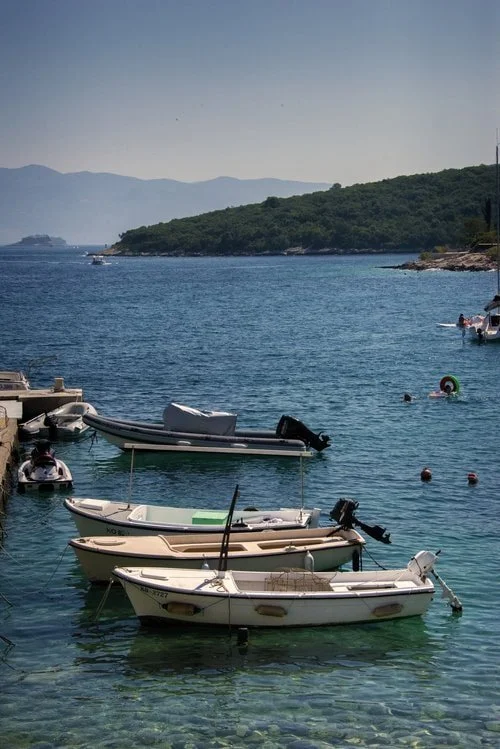
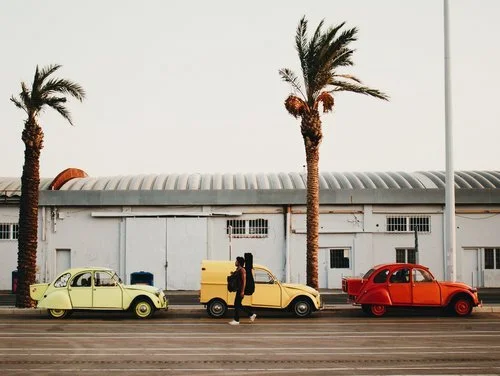
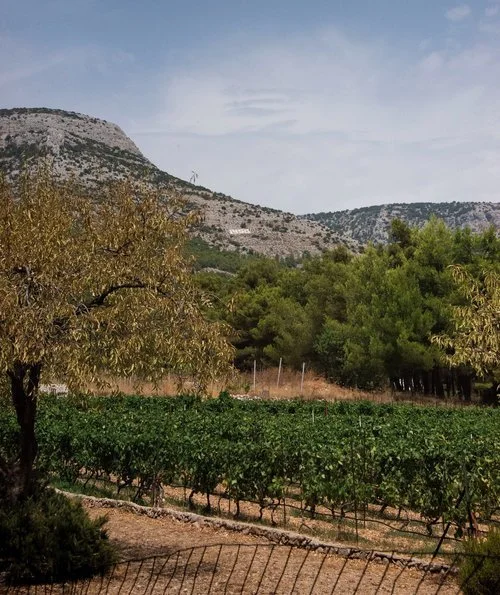
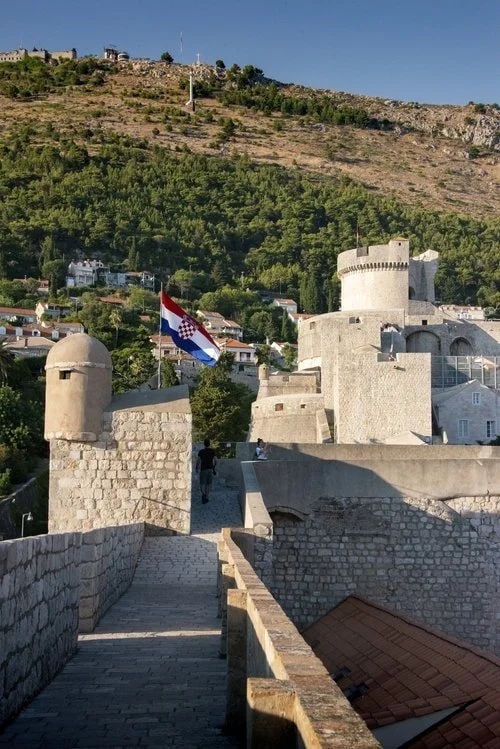


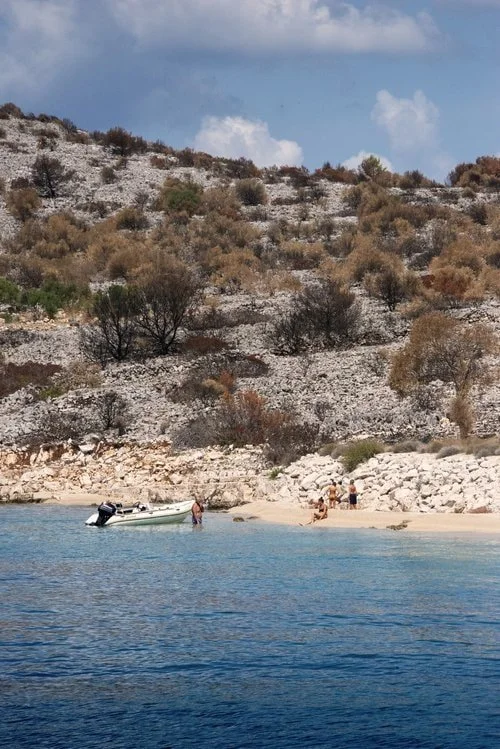
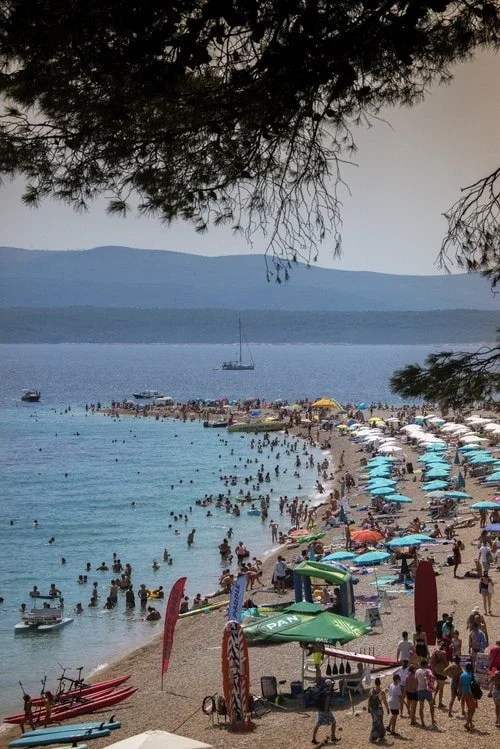
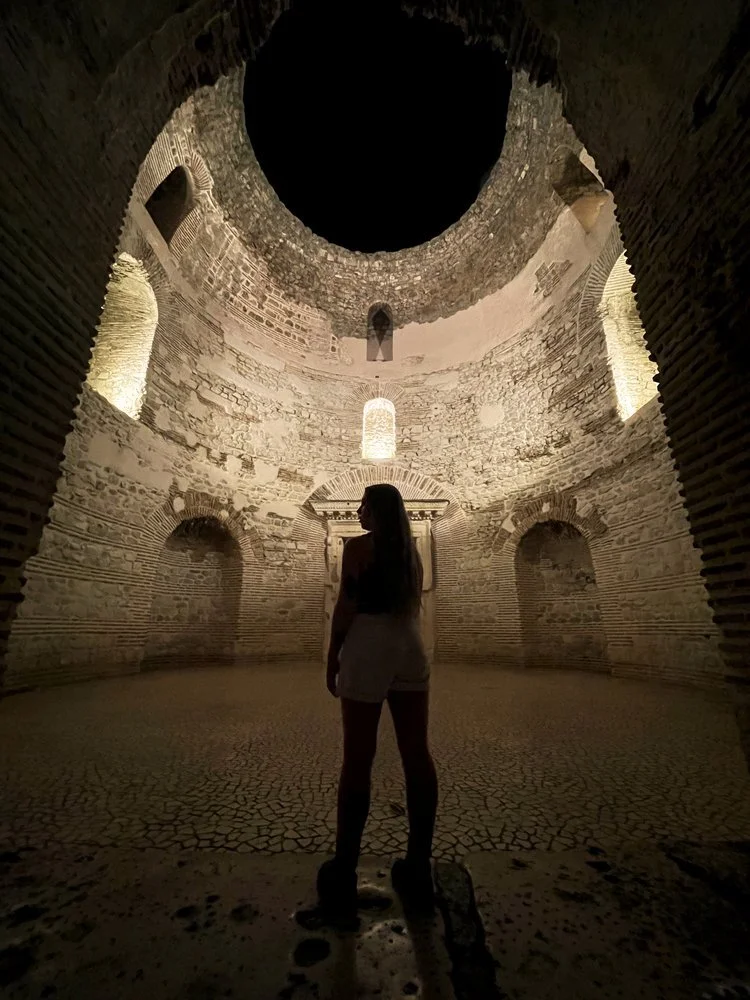

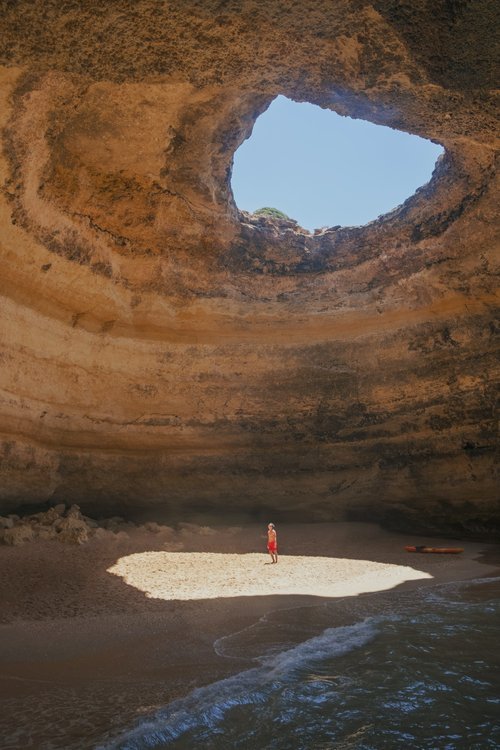
Rome is known for its historical monuments, colourful culture and delectable cuisine. There’s plenty to pack into your itinerary, but if you tire of Italy’s capital, escape on one of these day trips from Rome.